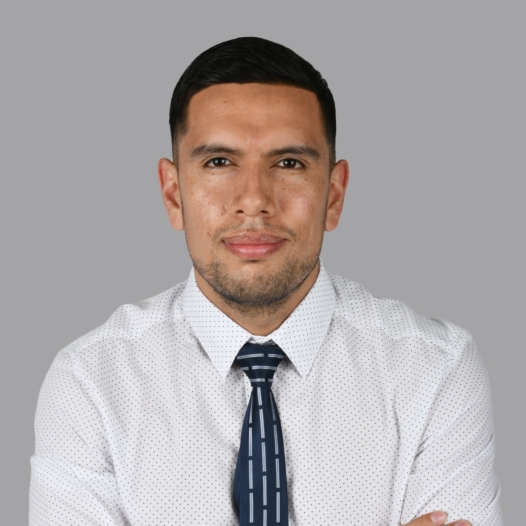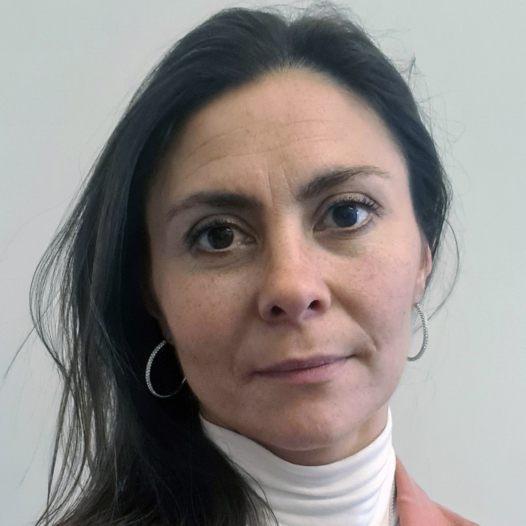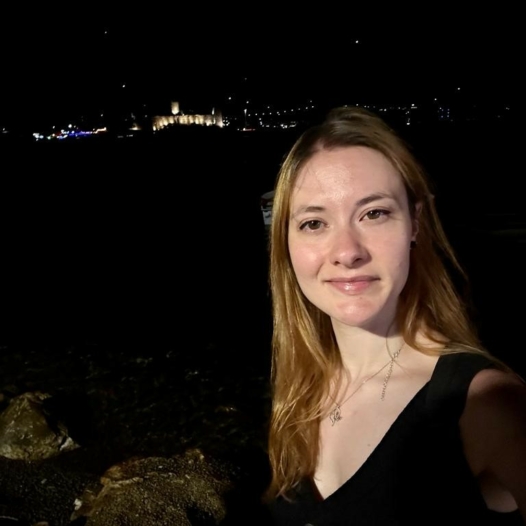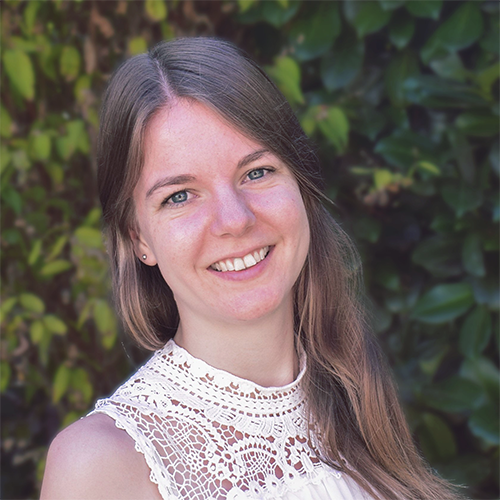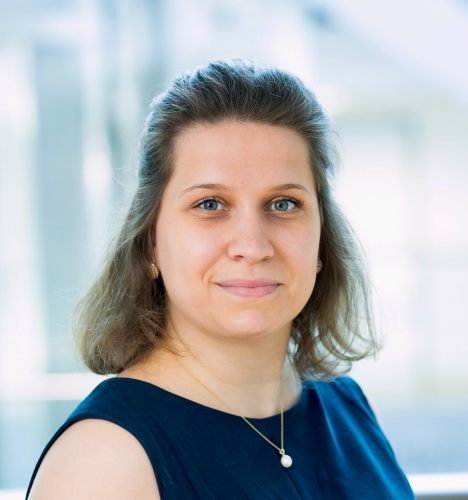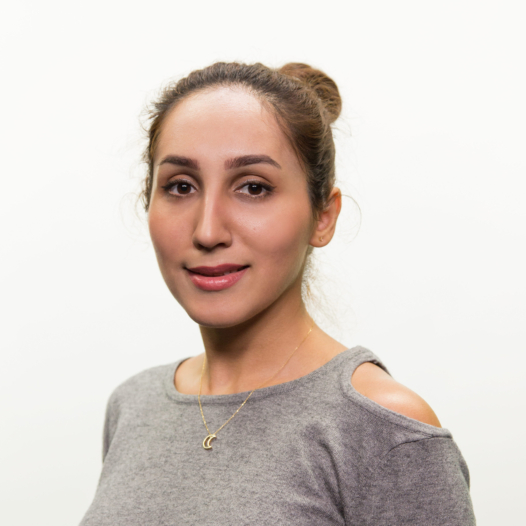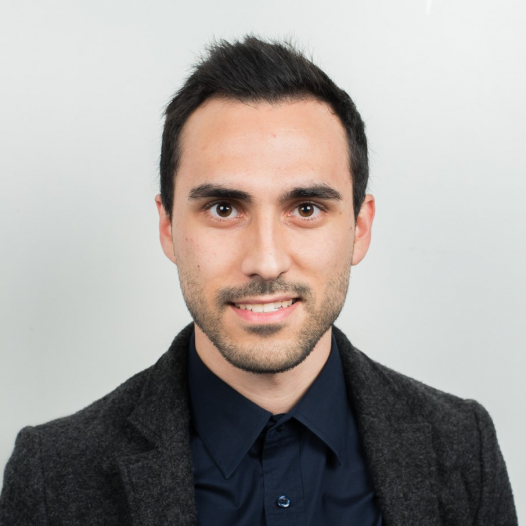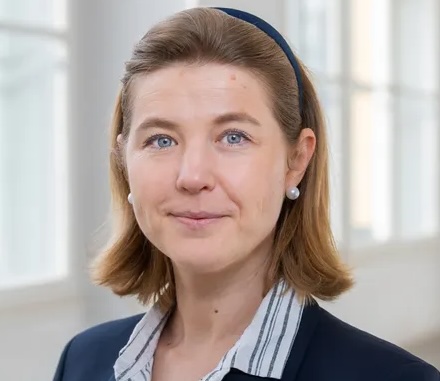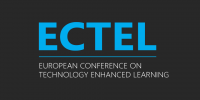
Eighteenth European Conference on Technology Enhanced Learning
Responsive and Sustainable Educational Futures
Aveiro, Portugal, 4-8 September 2023
Doctoral Consortium
The EC-TEL Doctoral Consortium brings together PhD candidates working on topics related to Technology-Enhanced Learning providing them an exceptional opportunity to present, discuss, and receive feedback on their research in an interdisciplinary and international atmosphere. Prominent professors and researchers in the field of Technology-Enhanced Learning will provide formative feedback to the selected papers through the review process and contribute actively to discussions at the workshop.
More information will be available soon.
Who can apply
The intention of this doctoral consortium is to support and inspire PhD candidates during their ongoing research efforts. Therefore, we will consider applications from PhD candidates who:
- have started to work on a PhD before the doctoral consortium
- have neither achieved their PhD degree nor officially submitted their thesis before the doctoral consortium
- have the topic of their work within the Technology-Enhanced Learning domain
- have good reading and writing English skills
Why apply to the DC?
- By joining the DC, you will have a chance to share your current work in progress in a friendly group.
- You will receive feedback on your proposal by experienced anonymous reviewers.
- You will practice communicating your research to a group of researchers in your area.
- You will have an opportunity to discuss PhD employability and strategies in a friendly environment.
- You will meet other PhD students sharing the same interests as you.
Application process
1. Doctoral Consortium paper
- Write about your PhD research!
- The length of the Doctoral Consortium paper is 5-10 pages.
-
Create a submission and upload the paper to EC-TEL EasyChair.
-
(optional) All accepted Doctoral Consortium papers can prepare a poster about their PhD and participate in the EC-TEL 2023 poster session.
2. Application form
PhD candidates are requested to complete the EC-TEL Doctoral Candidate application form. Time required: 5 minutes.
Doctoral Consortium paper
Elements to be addressed in the EC-TEL Doctoral Consortium paper
- A clear formulation of the research question
- An identification of the significant problems in the field of research within the TEL domain
- An outline of the current knowledge of the problem domain, as well as the state of existing solutions
- A presentation of any preliminary ideas, the proposed approach and the results achieved so far
- An outline of the applied research methodology
- A description of the PhD project’s contribution to the problem solution in the TEL domain
- A discussion of how the suggested solution is different, new, or better as compared to existing approaches to the problem
Proceedings of the previous EC-TEL Doctoral Consortia
2022 Proceedings of the Doctoral Consortium at the European Conference on Technology Enhanced Learning
2021 Proceedings of the Doctoral Consortium at the European Conference on Technology Enhanced Learning
2018 Proceedings of the Doctoral Consortium at the European Conference on Technology Enhanced Learning
2013 Proceedings of the Doctoral Consortium at the European Conference on Technology Enhanced Learning
Review and publication
The accepted Doctoral Consortium papers will be published in CEUR Workshop proceedings: ceur-ws.org. The participants will have the opportunity to improve their papers in response to the reviews and based on the feedback they received during the Doctoral Consortium.
All submissions will be reviewed by at least three senior researchers.
Accepted PhD candidates
Amine Boulahmel
IMT Atlantique Bretagne - Pays de la Loire
Short Biography Amine Bouahmel is a second year PhD candidate at IMT Atlantique Bretagne, in Brest, France. Holding an MSc. in computer science with a specialization in Natural Language Processing (NLP), he is currently pursuing a PhD in Technology-Enhanced Learning (TEL). Previous work included the use of NLP techniques for text classification, concept analysis, and […]
Elvis Ortega-Ochoa
Universitat Oberta de Catalunya
Short Biography M. Sc. Elvis Ortega-Ochoa holds a Master’s Degree in Education and ICT (e-learning) from the Universitat Oberta de Catalunya (UOC), a Specialization in Quality Management in Education and a Bachelor of Science in Basic Education from the National University of Education (UNAE), and a Technical Assistant’s qualification in Computer Science from the South […]
Jaanika Hirv-Biene
Tallinn University, Estonia
Biography Jaanika Hirv-Biene is a Junior Researcher and a PhD student at Tallinn University, Estonia. She has received an MSc degree in Educational Technology from Tallinn University and MA degree in Translation from University of Tartu. In her PhD research, she investigates the role that self-directed learning at the workplace plays in transfer of learning […]
Jelena Larsen
UIT – The Arctic University of Norway
Short biography: I’m a second-year PhD candidate at Centre for Education, Learning and Technology (Result) at UIT – The Arctic University of Norway. Technology-enhanced learning and online education have been an important part of my carrier life. While working with faculty development, educational technology, and media production at the university I took my master´s degree […]
Manuel Valle Torre
Delft University of Technology (TUD), the Netherlands
Short bio: Manuel Valle Torre is a PhD candidate at the Centre for Education and Learning (CEL) at TU Delft, in the Netherlands. After completing a master’s degree in Computer Science in Delft, he worked as a research engineer in the Web Information Systems group and started collaborating with CEL, becoming involved in Learning Analytics […]
Melis Dülger
Utrecht University, The Netherlands
Biography Melis Dülger is a Ph.D. candidate in the Department of Educational Sciences at Utrecht University. She works on the research project “How teacher dashboards support the development of primary school students’ self-regulated learning skills” funded by The Netherlands Initiative for Education Research (NRO). She obtained her bachelor’s degree in Early Childhood Education program at […]
Nina Mouhammad
Leibniz Institute for Research and Information in Education - DIPF, Germany
Nina Mouhammad is a doctoral researcher at the Leibniz Institute for Research and Information in Education, based in Frankfurt am Main (Germany). Her current PhD research focuses on the training of verbal communication skills with AI-Feedback. Before this, she studied computer science with a minor in human sciences (mainly psychology) at TU Darmstadt. During her […]
Pablo García-Zarza
GSIC/EMIC (Universidad de Valladolid)
Short biography Pablo García-Zarza received his BSc and MSc in Telecommunications Engineering from the University of Valladolid, Spain, in 2019 and 2021 respectively. He is currently a PhD candidate at the University of Valladolid. His main research interests include ubiquitous learning and Linked Open Data for the support of learning. PhD project This project […]
Steven James Moore
Carnegie Mellon University, USA
Biography: I am a PhD student at the Human-Computer Interaction Institute in the School of Computer Science at Carnegie Mellon University, advised by Dr. John Stamper. I use my background in learning science, computer science, and applied natural language processing to create and evaluate educational content for online courseware. This has led to advancements in […]
Theo Nelissen
Avans University of Applied Sciences in the Netherlands
Short academic bio Theo Nelissen has a master’s degree in sociology and is a currently working as a senior advisor and researcher at Avans University of Applied Sciences. He has done practice based research since 2007 and co-founded the Institutional Research team at his institution. He has experience in qualitative and quantitative research as well […]
Theresa Zobel
Hasso Plattner Institute, Germany
Short Biography: Theresa Zobel earned her bachelor’s and master’s degrees in IT systems engineering at the Hasso Plattner Institute (HPI) in 2020. She is currently working as a research assistant and doctoral student on the development of an intelligent learning assistant, a dialog agent, designed to enhance users’ learning experience and help them navigate MOOC […]
Victor Alonso-Prieto
GSIC/EMIC (Universidad de Valladolid)
Short biography Víctor Alonso-Prieto received the B.Ed (specialized in English as a Foreign Language in Elementary Education) and M.Ed (research applied to Education) from the University of Valladolid, Spain, in 2019 and 2021, respectively. In between he was a lecturer in an Elementary School in Minnesota, USA. Víctor is currently working toward the Ph.D degree […]
Zeynab Mohseni
Linnaeus University, Sweden
Short biography Zeynab (Artemis) Mohseni received her master’s degree in computer engineering from Science and Research Branch, Azad University, Tehran, Iran in 2015. From 2017 to 2019 she worked as a researcher at Universidad Antonio de Nebrija, Madrid, Spain. She is currently working toward a Ph.D. degree within the EdTechLnu research group at the Department […]
Accepted submissions
- Melis Dülger. Utrecht University (The Netherlands). Developing students’ self-regulated learning skills with teacher classroom analytics enhancing teachers’ direct instruction of self-regulated learning strategies.
- Zeynab Mohseni. Linnaeus University (Sweden). Towards a Teacher-Oriented Framework of Visual Learning Analytics by Scenario-Based Development.
- Franklin Nyairo. University of Helsinki (Finland). Basic Education Curriculum and EFL Teacher Education for 21st Century Learning in Finland and Kenya.
- Elvis Ortega-Ochoa. Open University of Catalonia (Spain). An Empathic Pedagogical Conversational Agent and Development of Competencies.
- Steven Moore. Carnegie Mellon University (USA). Developing an Automated Evaluation Tool for Multiple-Choice Questions.
- Jelena Larsen. The Arctic University of Norway (Norway). Explaining the Influence of Learning Design on Student Learning Behaviour using Learning Analytics.
- Theo Nelissen. Avans University of Applied Sciences (The Netherlands). Supporting HE students’ competence in using SFLA for SRL.
- Theresa Zobel. Hasso Plattner Institute (Germany). Smart Assistant for MOOCs: Enhancing Learner Support and Accessibility.
- Amine Boulahmel. IMT Atlantique (France). Towards a skill-based self-Regulated Learning Recommendation System.
- Nina Mouhammad. DIPF | Leibniz Institute for Research and Information in Education (Germany). Participatory Design of an Application for Training Presentation Content Preparation Skills.
- Manuel Valle Torre. Delft University of Technology (The Netherlands). Learning Sequence Analytics for Support in Complex Tasks.
- Victor Alonso-Prieto. University of Valladolid (Spain). Studying the Impact of Orchestrating Intelligent Technologies in Hybrid Learning Space for Teacher Agency: A Step Towards Understanding.
- Pablo García-Zarza. University of Valladolid (Spain). Supporting Teachers in the Generation of Ubiquitous Learning Situations Across Multiple Domains and Spaces Based on Linked Open Data.
- Jaanika Hirv-Biene. Tallinn University (Estonia). Self-directed Workplace Learning in Transfer from Education and Training to Workplace.
Program Committee
- Daniele Di Mitri DIPF | Leibniz Institute for Research and Information in Education
- Oleksandra Poquet Technical Univesity of Munich
- Alejandro Ortega Universidad de Valladolid
- Pedro J. Muñoz-Merino Universidad Carlos III de Madrid
- Bruce Mclaren Carnegie Mellon University
- Monica Divitini Norwegian University of Science and Technology
- Mutlu Cukurova University College London
- Luis P. Prieto GSIC-EMIC group, School of Telecommunications Engineering, Universidad de Valladolid
- Tobias Ley University for Continuing Education Krems
- Luke LeFebvre University of Kentucky
- Manuel Caeiro Rodríguez University of Vigo
- Olga Viberg KTH Royal Institute of Technology
- Gerti Pishtari University for Continuing Education Krems (Danube University)
- Mar Perez-Sanagustin Université Paul Sabatier Toulouse III
- Mikhail Fominykh Norwegian University of Science and Technology
- Geraldine Gray Technological University Dublin
- Eyal Rabin The Open University of Israel
- Derek Lomas Human Computer Interaction Institute, Carnegie Mellon University
- Patricia Santos Universitat Pompeu Fabra
- Ryan Baker University of Pennsylvania
- Sonsoles López-Pernas University of Eastern Finland
- Jelena Jovanovic, University of Belgrade
Important dates
- 3 July 2023 – PhD candidate application deadline
- 31 July 2023 – Doctoral Consortium reviews
- 4 September 2023 – EC-TEL 2023 Doctoral Consortium
- 1 October 2023 – Camera-ready version of the improved submission
- November 2023 – Expected publication date
Program of the EC-TEL Doctoral Consortium
4 September 2023
09:30-18:00 WEST
Introductions and program of the day
09:30 - 09:45 WEST
In the welcome address, the Doctoral Consortium chairs and EATEL board representatives will present the doctoral education activities at EATEL and present the program of the event.
Group 1: Teachers I
09:45 - 10:30 WEST
| (2) Jelena Larsen | Explaining the Influence of Learning Design on Student Learning Behaviour using Learning Analytics | The Arctic University of Norway (Norway) |
| (3) Victor Alonso-Prieto | Studying the Impact of Orchestrating Intelligent Technologies in Hybrid Learning Space for Teacher Agency: A Step Towards Understanding | University of Valladolid (Spain) |
Parallel Discussion Group 1
10:30 - 11:00 WEST
Coffee break
11:00 - 11:30 WEST
Group 2: Learning Analytics Systems
11:30 - 12:15 WEST
| (4) Jaanika Hirv-Biene | Self-directed Workplace Learning in Transfer from Education and Training to Workplace. | Tallinn University (Estonia) |
| (5) Manuel Valle Torre | Learning Sequence Analytics for Support in Complex Tasks. | Delft University of Technology (The Netherlands) |
| (6) Nina Mouhammad | Participatory Design of an Application for Training Presentation Content Preparation Skills. | DIPF | Leibniz Institute for Research and Information in Education (Germany) |
Parallel Discussion Group 2
12:15 - 12:45 WEST
Lunch break
13:00 - 14:00 WEST
Group 3: Self-regulated Learning
14:00 - 14:45 WEST
| (7) Amine Boulahmel | Towards a skill-based self-regulated Learning Recommendation System. | IMT Atlantique (France) |
| (8) Theo Nelissen | Supporting HE students’ competence in using SFLA for SRL. | Avans University of Applied Sciences (The Netherlands) |
| (9) Melis Dülger | Developing students’ self-regulated learning skills with teacher classroom analytics enhancing teachers’ direct instruction of self-regulated learning strategies. | Utrecht University (The Netherlands) |
Parallel Discussion Group 3
14:45 - 15:15 WEST
Group 4: Chatbots & AI in Education
15:15 - 16:00 WEST
| (10) Elvis Ortega-Ochoa | An Empathic Pedagogical Conversational Agent and Development of Competencies. | Open University of Catalonia (Spain). |
| (11) Steven Moore | Developing an Automated Evaluation Tool for Multiple-Choice Questions. | Carnegie Mellon University (USA) |
| (12) Theresa Zobel | Smart Assistant for MOOCs: Enhancing Learner Support and Accessibility. | Hasso Plattner Institute (Germany) |
Parallel Discussion Group 4
16:00 - 16:30 WEST
Coffee break
11:00 - 11:30 WEST
Group 5: Teachers II
17:00 - 17:30 WEST
| (13) Pablo García-Zarza | Supporting Teachers in the Generation of Ubiquitous Learning Situations Across Multiple Domains and Spaces Based on Linked Open Data. | University of Valladolid (Spain). |
| (14) Zeynab Mohseni | Towards a Teacher-Oriented Framework of Visual Learning Analytics by Scenario-Based Development. | Linnaeus University (Sweden) |
Parallel Discussion Group 5
17:30 - 18:00 WEST
Closing and feedback round
18:00 WEST
Doctoral Consortium chairs
Alejandro Ortega-Arranz
Universidad de Valladolid, Spain
Alejandro Ortega-Arranz received his Ph.D. degree in telecommunications engineering from Universidad de Valladolid (Spain), in 2021. Currently, he is Assistant Professor at the Computer Science Department of the University of Valladolid (Spain), and an active member of the GSIC-EMIC Research Group. GSIC-EMIC aims at improving the teaching and learning educational processes scientifically, and Alejandro’s main […]
Daniele Di Mitri
German UDS, Germany
Daniele Di Mitri is a professor of Multimodal Learning Technologies at the German University of Digital Science. At the German UDS he leads the research group “Augmented Feedback” and coordinates the master’s in Advanced Digital Realities. He is an associated researcher at the DIPF – Leibniz Institute for Research and Information in Education and a […]
Oleksandra Poquet
Technical University of Munich, Germany
Picture credit: Andreas Heddergott / TUM Oleksandra Poquet is an Assistant Professor of Learning Analytics at the Technical University of Munich. Her research examines how learner data support and inform learning practices, with a particular focus on interventions, computational modelling, and complex dynamical systems theories. She is a core member of the Munich Data Science […]

